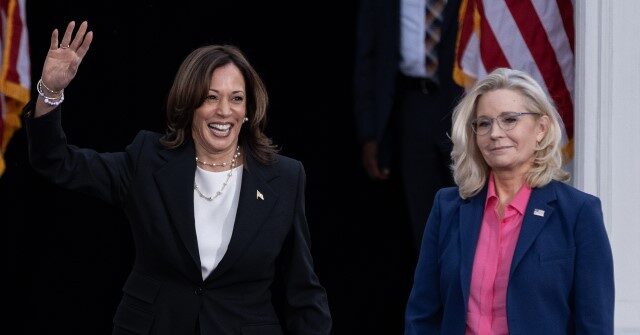The controversy surrounding remarks made by former President Donald Trump about former Rep. Liz Cheney has escalated into a distorted narrative claiming he called for her execution. This narrative gained traction after Trump, during an interview with Tucker Carlson, criticized Cheney’s warhawk stance and the notion of sending American troops into dangerous situations, suggesting that if she advocated for war, she should experience its realities firsthand. Specifically, Trump referred to Cheney as “very dumb” and labeled her a “radical Warhawk,” questioning her understanding of the dangers faced by troops by proposing a hypothetical scenario where she would be in the front lines. This has been spun by certain media outlets and political figures into a misleading charge that Trump directly threatened Cheney’s life.
Critics of this narrative include several commentators who remarked on the misrepresentation of Trump’s words. Zach Beauchamp from Vox stated that Trump merely criticized Cheney as a “chickenhawk,” a term used to describe individuals who advocate for war without having served in the military themselves. Beauchamp further highlighted that Trump’s comments should not be seen as a threat of execution, especially since he discussed arming Cheney, which contradicts the notion of her being executed. Ian Bremmer, a political scientist, echoed this sentiment by condemning the sensationalist headlines that emerged from the statement, calling the misrepresentation “extraordinarily irresponsible.” His comments point to a wider concern about the tendency of political media to propagate exaggerated narratives.
The backlash against the distorted coverage came from various conservative politicians and influencers as well. Representative Byron Donalds (R-FL) refuted the false claims, asserting that Trump was critiquing Cheney’s lack of military experience and her eagerness to engage in conflicts from a distance. Donalds charged that the left and mainstream media were again engaging in selective reporting, misrepresenting Trump’s comments to discredit him. His remarks suggest a strategy by the Democratic camp to mislead voters as they perceive growing momentum for the GOP, particularly in the lead-up to elections.
In a broader context, media critiques have intensified with accusations of disinformation campaigns designed to confuse voters just before critical voting periods. Commentators like Colin Rugg pointed to CNN’s coverage as an example of this disinformation, asserting that the network intentionally edited Trump’s comments to create a narrative that he was calling for Cheney’s execution. This strategic editing, according to Rugg, ignored the necessary context of Trump’s statements, potentially misleading voters about the true nature of his critique.
Further emphasizing the misrepresentation, journalist Jack Posobiec reiterated that Trump’s comments were ultimately a commentary on the disconnect between elite leaders and troops who are sent off to war. He articulated Trump’s perspective that those in positions of power often advocate for military actions without facing the consequences themselves, thereby highlighting a systemic issue rather than issuing a direct threat against Cheney. This framing aligns with concerns expressed by several analysts about the dangers of reducing complex political discourse to sensationalist headlines.
The social media landscape also joined the conversation, with accounts such as @LibsofTikTok highlighting the discrepancies in media reporting on Trump’s remarks. They asserted that the mainstream narrative was deliberately misleading, calling attention to the essential context that was omitted in various reports. Such commentary underscores the ongoing struggle within media and political communication, where facts are often overshadowed by dramatic interpretations and partisan agendas, reflecting a polarized environment in contemporary American politics.

